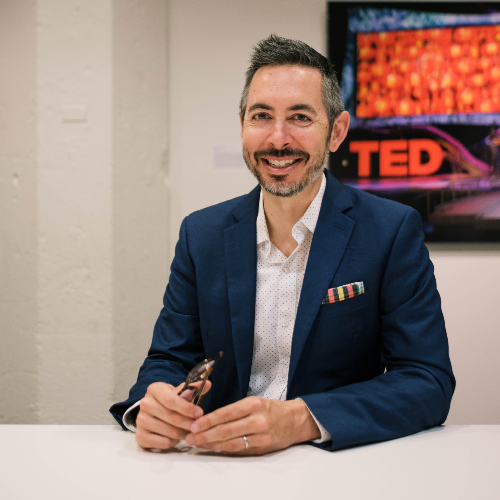Episode 213
The Gardens of Democracy
If you’re a regular listener of this program, you may have noticed that we didn’t publish an episode last week. As I’m sure you are all aware, on the day that we usually record, the Supreme Court of the United States issued a ruling that overturned Roe vs Wade and effectively ended Americans’ right to abortion in more than half of the country, including here in Oklahoma. If you want to learn more about the specifics of Oklahoma’s abortion laws, including the four that were added this year, listen to episode 210, called “Why so many abortion bans?” which was published just a few weeks ago, on May 29th. It features an interview with Tamya Cox-Toure, who is the executive director of ACLU Oklahoma and co-chair of the Oklahoma Call for Reproductive Justice.
While this Supreme Court ruling was expected because the decision was leaked a few months ago, the reality of it actually happening has left millions of people feeling heavier, angrier, and more despondent than I think we anticipated. The ruling is unequivocally harmful to every person who can become pregnant and to our society at large. American women, including my daughters, are now growing up in a world where they have more risk and fewer rights than did their mothers and grandmothers.
This ruling will have a disproportionate impact on black and brown communities and people who are in poverty. Abortion is still legal in many states, but that doesn’t mean it is accessible. Thousands of people who will need abortions are now unable to get one.
In addition to its overt harm, this ruling is remarkable for a number of reasons - the contemputous tone taken by the author, Justice Samuel Alito, for example. Also the fact that several members of the court have been credibly accused of sexual harrassment and were appointed by a president who was also credibly accussed of sexual assault. Or that nearly all the justices, when asked during their Senate confirmation hearings if they would overturn Roe v Wade, stated that they would not, agreeing that Roe was settled precedent. And yet, here we are.
And then there is the concurring opinion written by Justice Clarence Thomas, which openly advocates for the overturning of the precedent set by three other Supreme Court cases - Griswold, Lawrence, and Obergefell - which provide protections for access to birth control, consensual sex, and same-sex marriage, respectively.
Justice Thomas is regarded as one of (if not the) most conservative justices on the bench, and these type of comments should give all Americans reason for serious concern. This kind of approach, often called “orginialist” or "textualist,” is dangerous to the American way of life because it implies that every right and privilege that is conveyed to us by legal precedent but not specifically outlined in the Constitution is now at risk. There is a lot of prededecent that all of us take for granted because it has been settled for years or even decades.
Abortion isn’t just a partisan issue, it’s a power issue. People of all political affiliations need and receive abortions every year. The issue is about who has the power over women. Who gets to make decisions about their health needs, about what happens to their bodies, about their freedom and independence and autonomy.
The people opposed to abortion have been very open that this fight is not about science or reason, it is about values. Public policy is rooted in values, and sometimes values cut across partisan lines in ways we don’t expect. But we don’t usually talk about our values with one another, we usually just talk about policy. Why is that?
To explain, I’m going to borrow (and extend) an analogy from my friend Eric Liu, founder and CEO of Citizen University and the author of several books, including “The Gardens of Democracy.”
Consider our democracy to be a garden. Our values are the soil and policy are the flowers and fruit that grow from that soil. We are all gardeners, tasked with maintaining this garden. When someone talks about their garden, the conversation is about the plants - the beautiful roses, the juicy tomatoes, health that it brings to the whole local ecosystem. But they rarely talk about what makes the garden grow - the soil. They don’t mention the months of hard work it took to prepare it, the hours they spend every week watering, pruning, and weeding. The soil is what nourishes the plants, just as our values are what generate good public policy.
In Oklahoma, there are roughly 3 million eligible voters, but only about 2 million are actually registered to vote. Of those, only about a million actually, turn out to vote - giving us the lowest rate of voter participation in the entire country. That’s like having 3 acres of land for a garden but only plowing 2 of them and then only planting seeds in one (and only watering half of that one). Look at all that potential garden that’s available! Imagine all the flowers and fruit we might have!
Of course, that’s a lot of land to cover, and without a plan we’re just going to trample all over the garden and potentially mess up the seeds that our fellow gardeners have planted. What we need to do is divvy up the territory into manageable sections, assign gardeners to each section, and make sure every team of gardeners has the tools and resources necessary to develop their parcel.
Here at Let’s Fix This and Let’s Fix This Votes, we’re working in collaboration with a team of organizations both in Oklahoma and nationally to develop that plot plan for our garden. We’re identifying voters throughout the state who share our values but have been ignored - fertile soil that has been left fallow for far too long.
If you’re interested in being a gardener with us, c’mon on down. We need you. Tending the soil is hard work and while some plants may bloom quickly, the full beauty of this garden may not be visible for several years. We need you to commit for the long haul, to help us make calls, knock on doors, and have conversations. If you’re interested, please go to letsfixthis.org/volunteer and sign up. We’ll have opportunities beginning in just a couple of weeks.



